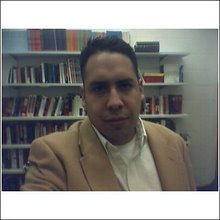Soccer and Nationalism
This event can be used for lecture extra credit, but you must go to the movie and corresponding panel. You also must connect the movie to IR concepts.
An Interdisciplinary Conference
Monday, April 20, 2009, 9:30– 5:00
UIC Institute for the Humanities, Lower Level, Stevenson Hall
Schedule of Events:
9:30: Opening Remarks
9:45-10:45: Film Screening: Who is Deutschland?
Who is Deutschland? focuses on the outpouring of national feeling
expressed in Germany during the 2006 World Cup tournament, and the
reactions and discussions it prompted in German society among people of
various backgrounds. Interviews with German politicians, rock stars, media
executives, museum directors and students highlight the tensions
surrounding the expressions of contemporary German patriotism. While
tracking the progress of the German team in the World Cup, the film
focuses on Markus, a leftist Berlin University student who tells his side
of the “German identity story.”
11:00-12:30: Film Screening: Goal Dreams
Founded in 1928, the Palestinian Football Association (PFA) is considered
one of the oldest football associations in the Arab World. Following the
team as they prepare for the 2006 World Cup, Goal Dreams chronicles the
suspension of domestic league games after an Israeli air strike on
Palestine Stadium, while Austrian coach Alfred Riedle makes a heroic
effort to mold players from diverse countries such as the USA, Chile,
Palestine, and Lebanon into a national team like no other.
12:30-1:30: Break for Lunch
1:30-3:00: Panel Discussion with the creators of Who is Deutschland?
Boaz Beeri, Director
Jon Medow, writer/researcher
Abraham Singer, writer/researcher
Mark Webber, York University and the Canadian Center for
German and European Studies
3:00-3:15: Coffee Break
3:15-4:45: Panel Discussion on Soccer and Nationalism:
Jeffrey Saunders, writer and director of Goal Dreams
Laurent DuBois, Professor of French and History, Duke University
4:45: Concluding Remarks
Sponsored by the International Studies Program, the Departments of
Germanic Studies, History and Political Science, and the Institute for the
Humanities
Friday, April 10, 2009
Subscribe to:
Post Comments (Atom)


No comments:
Post a Comment